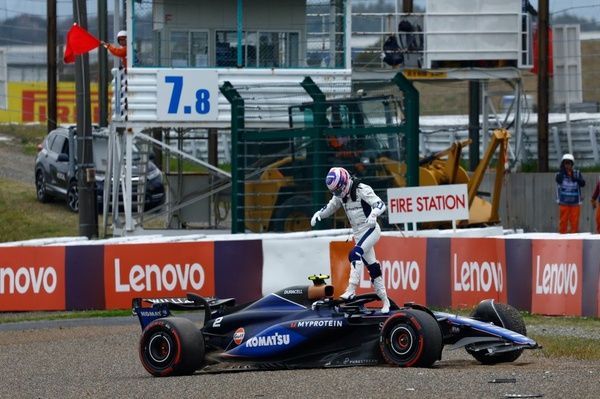Mercedes won't turn down engines despite Stroll failure
Toto Wolff says that Mercedes won’t change the way it operates its power units in the Canadian Grand Prix despite concerns generated by a failure for Racing Point’s Lance Stroll in practice.

Photo by: Steven Tee / Motorsport Images
All six Mercedes-equipped cars had the latest Phase 2 power unit fitted on Friday, and there were no issues until Stroll experienced a spectacular failure at the start of FP3.
The Canadian driver went back to his original Phase 1 engine for qualifying and the race.
Mercedes won’t have a full understanding of the failure until the unit is examined on its return to its Brixworth factory, so it has no choice but to run the remaining Phase 2 engines as planned in the race.
“I think it came as a surprise to us,” said Wolff. “We have been running those engines on the dynos and still believe that what we have seen on the dyno counts.
"You can’t turn them down or run them differently because of a failure that is very difficult to judge. So no change from the way we run the engine.
“With mature regulations you’re not seeing huge gains anymore with the introduction of new engines, making these smaller steps and reliability fixes.
"I’m of course not happy for Lance and for Racing Point that missed a complete session with a brand new engine that went bust. We need to understand what it was, which we don’t at the moment. Question marks remain over what happened.
"Overall I’m happy we introduced a fresh engine, and just take it from then – learn from every mile we are able to run these engines. Learn and optimise them.”
Wolff stressed that even with the Phase 2 unit Mercedes was losing out to Ferrari on the straights.
“They were very good last year already and we knew the straightline speed was something that is going to be very difficult to defend against," he said. "The way you summarise today’s session is losing 0.6s on the straights and trying to make it up on the corners but 0.4s is not enough.”
Wolff also played down suggestions that Lewis Hamilton’s FP2 accident – and resultant loss of track time – ultimately cost the reigning champion pole.
“I think that every tiny margin matters but equally you can’t point at a single event and say this is what cost pole," he said. "Credit to Ferrari, they were extremely competitive today and Sebastian put in an awesome lap and this is why they deserved to be on pole.
"We overall weren’t good enough for pole and we now need to do the best for the race."

Charles Leclerc, Ferrari, talks with pole man Sebastian Vettel, Ferrari, after Qualifying
Photo by: Mark Sutton / Sutton Images
Be part of Motorsport community
Join the conversationShare Or Save This Story
Subscribe and access Motorsport.com with your ad-blocker.
From Formula 1 to MotoGP we report straight from the paddock because we love our sport, just like you. In order to keep delivering our expert journalism, our website uses advertising. Still, we want to give you the opportunity to enjoy an ad-free and tracker-free website and to continue using your adblocker.























Top Comments